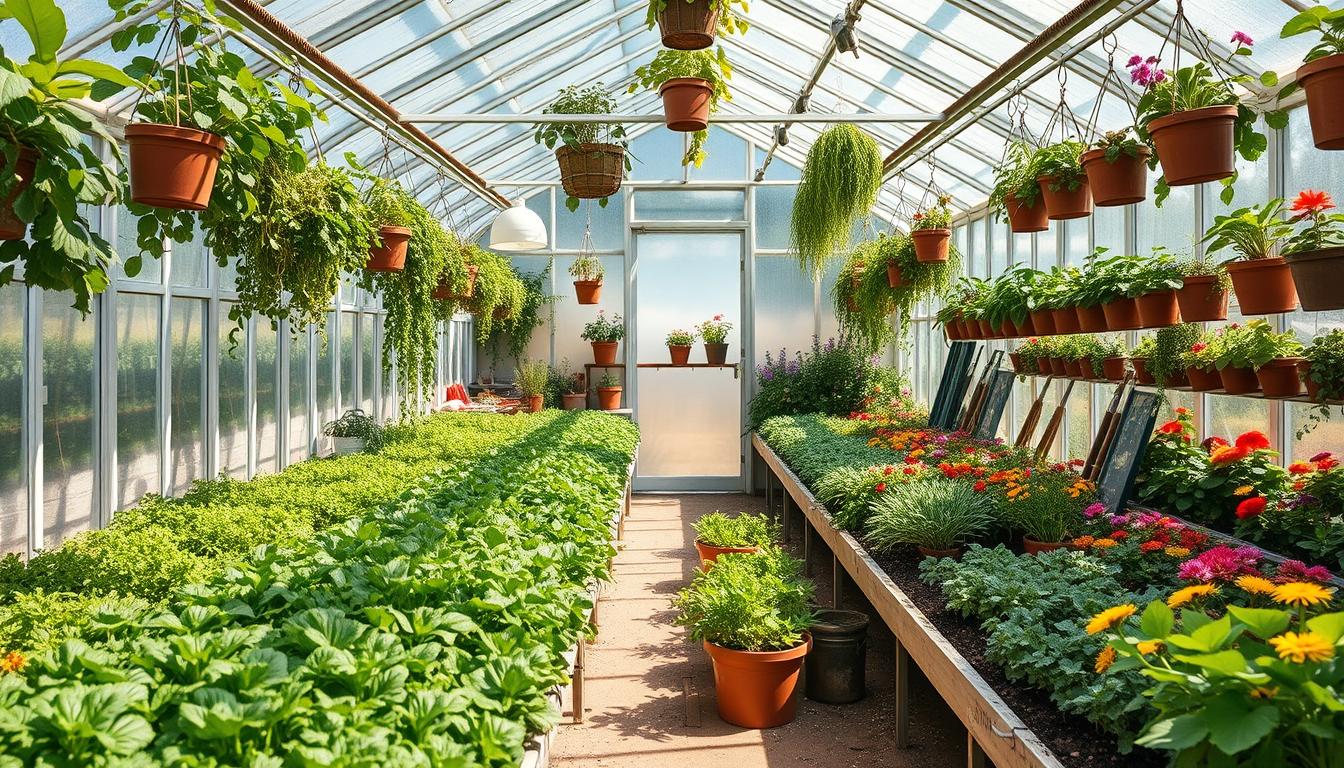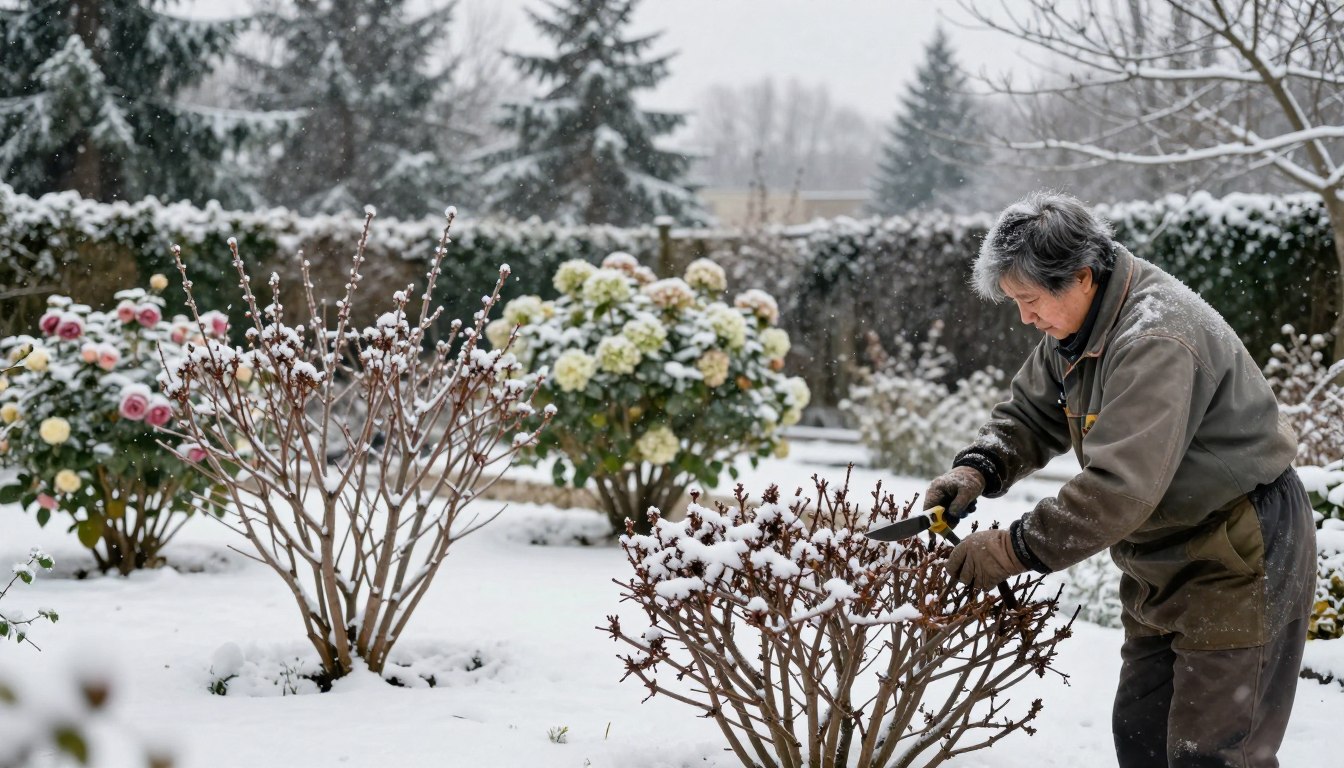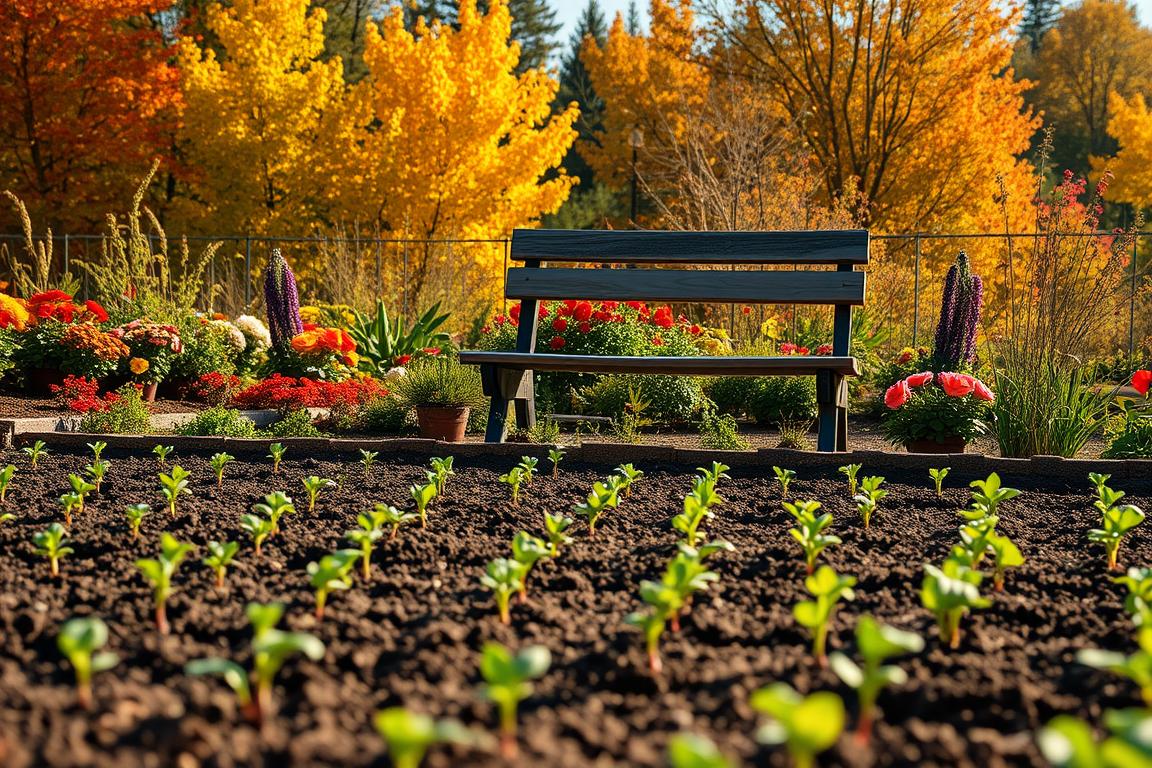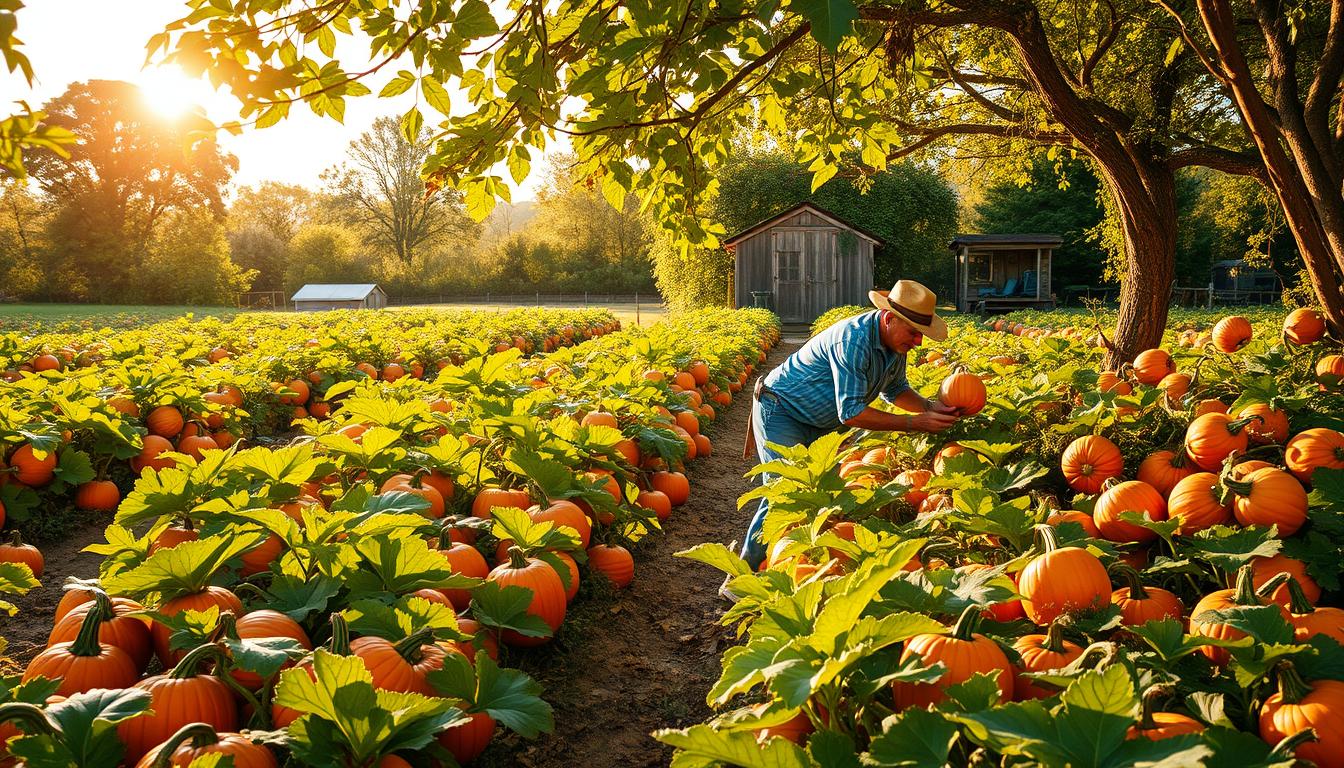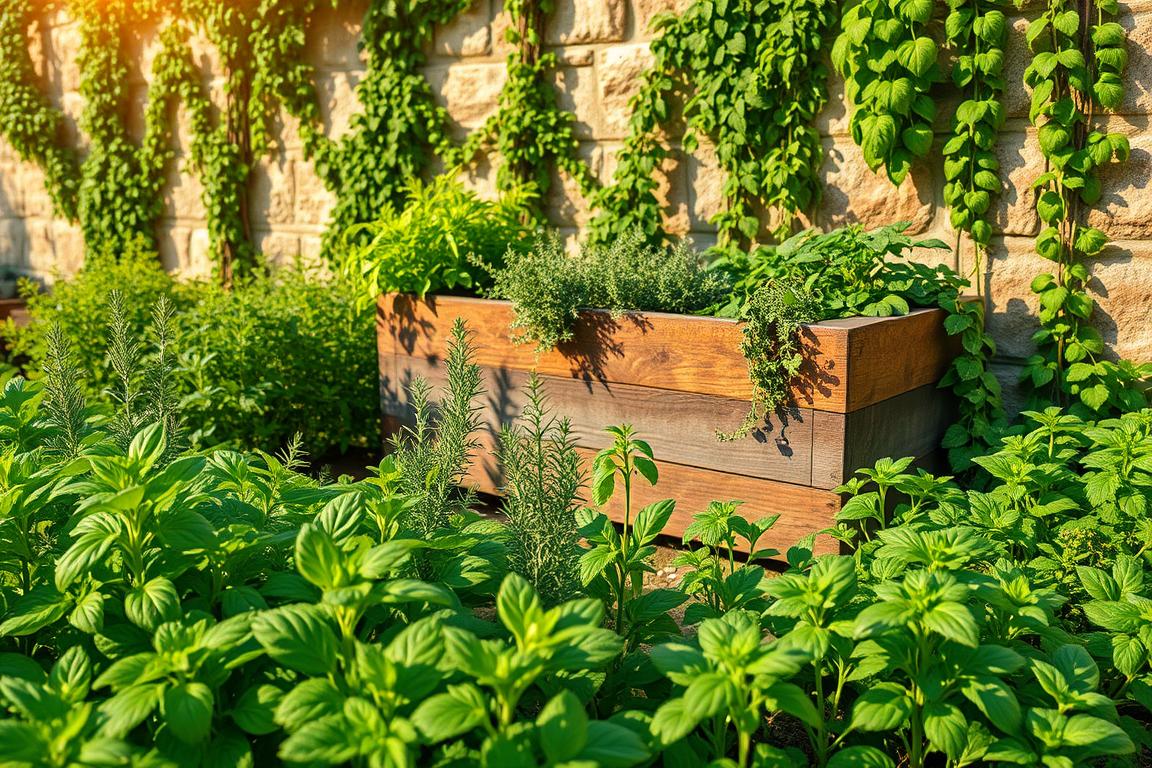I love gardening and have found that greenhouses are amazing. They let me grow plants all year, no matter the weather outside. Greenhouses help me grow better crops and keep plants safe from bad weather and pests.
Greenhouse-grown food often tastes better and grows more than outdoor crops. The right temperature, humidity, and light inside a greenhouse are perfect for many plants. Tomatoes and peppers do especially well inside.
Greenhouse gardening means I can have fresh food all year. I can grow different crops in every season. This way, I always have fresh, homegrown food for my loved ones.
Key Takeaways
- Greenhouse gardening provides a controlled environment for higher yields and year-round production
- Certain crops, like tomatoes and peppers, thrive in the greenhouse setting
- Greenhouses offer protection from harsh weather conditions, ensuring more stable growing conditions
- Proper ventilation, lighting, and maintenance are crucial for successful greenhouse gardening
- Greenhouse gardening allows for the cultivation of frost-tolerant crops during the winter season
Understanding Greenhouse Growing Fundamentals
Greenhouse gardening is a fascinating hobby that lets you grow plants all year. It’s all about controlling temperature, light, and air. These basics are key to growing healthy plants.
Temperature Control and Climate Regulation
Temperature is crucial for plant growth in greenhouses. The right temperature is vital. Greenhouses are built with glass or plastic to let in light.
They use heating and cooling systems to keep the climate perfect. Timers on heaters and evaporative coolers are great for different climates.
Day Length and Light Management
Light is as important as temperature for plants. They need specific light for photosynthesis. Red and blue light are especially important.
Supplemental lights like LEDs or fluorescent strips help. They ensure plants get enough light, even in winter.
Ventilation and Humidity Control
Good air flow and humidity control are vital. They prevent diseases and keep plants healthy. Owners must watch air and humidity levels closely.
Mastering these greenhouse basics lets gardeners create a thriving space. They can grow plants all year and enjoy a rich harvest.
Essential Setup and Equipment for Year-Round Success
To have a successful greenhouse all year, you need the right setup and tools. Keeping the climate right is crucial. This can be done with vents for temperature control, heaters or tubes for warmth, and smart systems for easy use.
Systems for climate control manage temperature, humidity, and air flow. This ensures plants grow well. You’ll also need grow lights, trays for seedlings, irrigation systems, and ways to feed plants. It’s important to arrange everything well to avoid crowding and make the most of your space.
- Structural vents for temperature regulation
- Overhead unit heaters or poly convection tubes for supplemental warmth
- Automated technology systems for efficient climate control
- Grow lights to supplement natural light
- Seedling trays for starting plants
- Automated irrigation systems for precise water delivery
- Plant nutrients to support healthy growth
Good planning and the right greenhouse equipment are key for a productive greenhouse all year. With the right tools, your greenhouse can thrive, giving you a rich harvest all seasons.
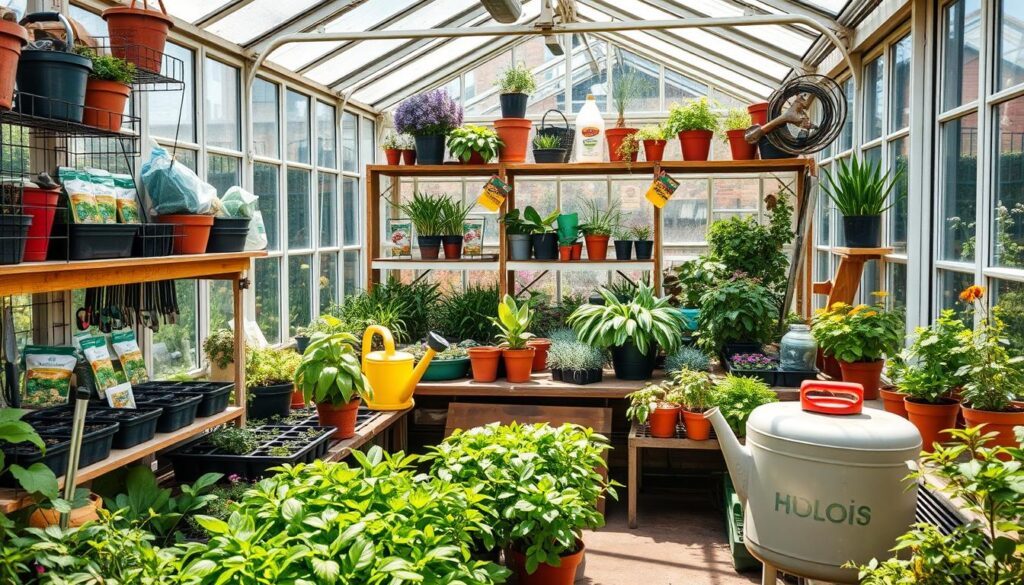
“Greenhouses can provide a controlled environment, allowing for year-round growth of plants like strawberries, beans, cucumbers, and peppers.”
Seasonal Planting Guide for Greenhouse Gardening
Greenhouse gardening lets us grow food all year. We can plan our planting to get the most from our garden. This way, we always have fresh, homegrown food.
Spring Growing Schedule
In spring, we start with cool-weather crops like lettuce and peas. These plants do well in the cooler weather. It’s also a good time to plant warm-weather crops that love the greenhouse.
Summer Crop Selection
Summer is for warm-weather crops like tomatoes and peppers. These plants need lots of sun and warmth. Choosing the right summer crops means a lot of tasty produce.
Fall Planting Strategy
As fall comes, we plan for winter. We plant hardy vegetables like spinach in the fall. This way, we have fresh greens and roots all winter.
Winter Growing Techniques
Winter gardening in a greenhouse needs special care. We use extra lights to help plants grow. We also keep an eye on temperature and humidity. This helps our winter crops thrive.
With this guide, greenhouse gardeners can grow food all year. The right planning and techniques make the greenhouse a place of fresh, healthy food.
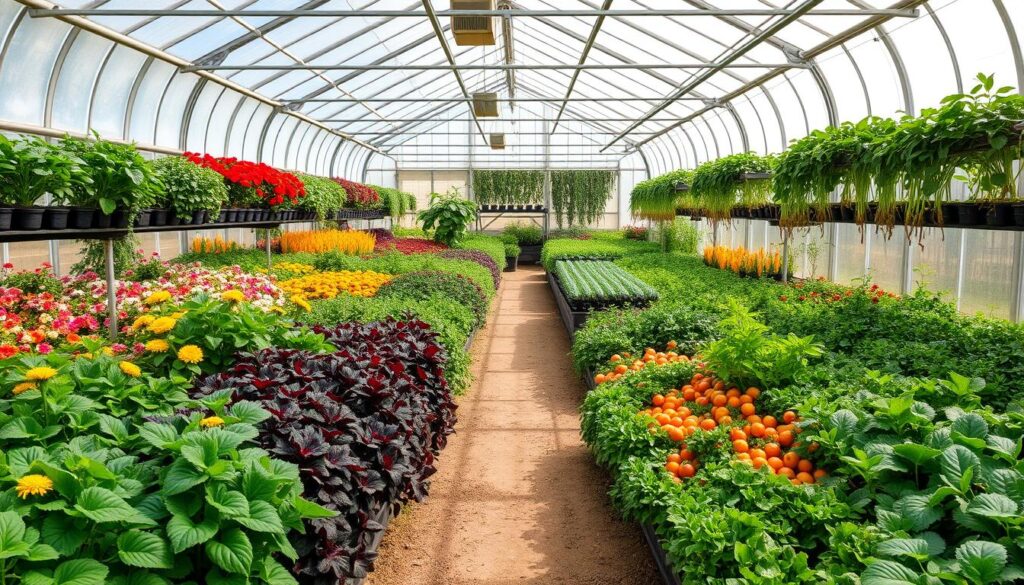
Growing Tropical Plants in Cold Climates
I love gardening and have found a way to grow tropical plants in cold places. Using greenhouses, I can grow citrus trees, bananas, mangos, and more in my backyard. It’s amazing.
My secret is the GAHT® system for geothermal heating. It keeps the greenhouse warm all year. The design also saves energy and keeps the plants cozy, even when it’s cold outside.
This has changed gardening for me. I can grow tropical fruits and veggies in Zone 6. It’s incredible how technology has made this possible. Now, my garden is full of colors and flavors I never thought I’d see.
FAQ
Q: What are the benefits of greenhouse gardening?
A: Greenhouse gardening lets you grow fruits, vegetables, and herbs all year. It keeps plants safe from bad weather. This way, you get better crops than growing outside.
Benefits include more food, longer growing seasons, and better quality. It also protects from weather and pests.
Q: What are the crucial factors in greenhouse planting schedules?
A: Temperature and daylight are key for planting in greenhouses. Daylight affects how plants grow. Most seedlings need 10 hours of light.
Managing temperature creates the right climate for plants. Place cold-hardy veggies near vents and warm spots.
Q: What essential equipment is required for a successful year-round greenhouse?
A: A good greenhouse needs the right setup and tools. This includes vents for temperature control and heaters for warmth. You’ll also need grow lights and systems for watering and feeding plants.
Q: How can I plan for seasonal planting in my greenhouse?
A: In spring, start with cool crops like lettuce and peas. Then, plant warm-season veggies. For summer, choose heat-tolerant plants like tomatoes.
In fall, plant winter crops early. For winter, grow hardy veggies like spinach. Use lights to keep plants growing.
Q: Can I grow tropical plants in a cold climate greenhouse?
A: Yes, you can grow tropical plants in cold climates with a greenhouse. Plants like citrus and bananas can thrive. Geothermal systems and efficient designs keep it warm.


